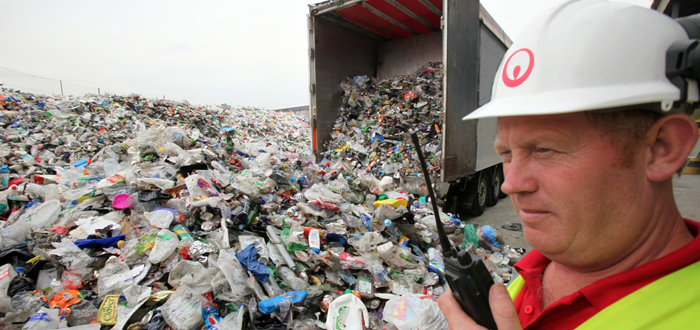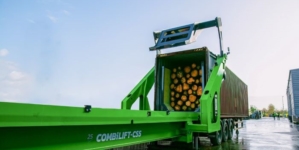-
ROSSLARE EUROPORT TARGETS HEALTH & SAFETY WITH CAMERA TELEMATICS PARTNERSHIP - 2 days ago
-
Landmark Study Reveals Wearable Robotics Significantly Boost Safety and Efficiency in Industrial Environments - July 24, 2024
-
Visku Tackle The Retail Seasonality Challenge One Pallet At A Time - July 22, 2024
-
KAMMAC AND BERGEN LOGISTICS STRENGTHEN FASHION & LIFESTYLE SERVICES IN THE UK - July 19, 2024
-
TENTBOX EXTENDS PARTNERSHIP WITH ARROWXL TO SUPPORT INCREASING DEMAND - July 17, 2024
-
The Perfume Shop improves customer journeys while driving profitability in partnership with Scurri - July 17, 2024
-
ZEROMISSION SECURES £2.3M ($3M) INVESTMENT TO ACCELERATE ELECTRIC FLEETS - July 16, 2024
-
BCMPA CELEBRATES SUCCESS OF 2024 CONFERENCE - July 15, 2024
-
Best of the Best: Jungheinrich Celebrates Triple International Award Win - July 12, 2024
-
GOPLASTICPALLETS.COM CALLS ON NEW CHANCELLOR RACHEL REEVES TO CONSIDER PLASTIC PACKAGING TAX REFORM - July 10, 2024
Time To Redesign Plastics – Most Consumers Want At Least 50% Recycled Content In Their Bottles.
New research by Veolia, the UK’s leading resource management company and market leader in plastic recycling, reveals that the vast majority of people – 93%, think plastic bottles should contain recycled content and most are also willing to pay an average of 2.5p more for it. Survey results published in Plan For Plastics, a new report launched today by Veolia and plastics experts, RECOUP, describe an indisputable gap between what recycled content the public expect to be in plastic products and the reality.
• 93% of consumers think plastic bottles should contain recycled content
• 55% of people think the majority of a bottle should be recycled content
Plastic bottles and packaging generally uses less than 15% recycled content – a significant distance from meeting consumer expectations.
In Plan For Plastics, Veolia outlines three ways the UK can turn plastic into an environmental success story;
• Simplify recycling to remove confusion
• Standardise packaging so a product is recyclable by design
• Increase the use of recycled content in the manufacturing of new products
The public have given a stamp of approval to the recycling industry, being prepared to pay an extra 2.5p for bottles containing recycled content – while 87% think plastic bottles should be recycled in the UK. This is the green light for greener manufacturing.
Veolia already recycles over 10,000 tonnes of plastic bottles in the UK every year and is calling on manufacturers and Government to remove the bottlenecks to greater recycling rates.
Richard Kirkman, Chief Technology and Innovation Officer, Veolia UK & Ireland says:
“Plastic packaging can be complex but increasing recycling rates can be simple. Veolia is in a unique position, holding a bird’s eye view over the end-to-end plastic recycling process, and in this report with industry experts RECOUP, we recommend three clear ways for the UK to become a champion of plastic recycling – both environmentally and economically – setting the standard for the next decade.
“The British public have told us they expect plastic bottles to be made of recycled content. We see 50% recycled content for plastic bottles and 30% for plastic packaging as realistic ambitions for every manufacturer to aim for within the next 10 years. When more packaging is both recyclable and made from recycled material, it will be the shift needed for recycled plastic to become mainstream.
“Veolia is planning to invest £1 billion in recycling and recovery infrastructure in the UK over the next five years. It is up to designers, manufacturers and Government to ensure supply matches our stake; so more plastic is collected and sorted to a higher quality standard. We owe it to future generations to make circular and sustainable living this country’s priority.”
Stuart Foster, Chief Executive Officer, RECOUP says:
“There is more focus on plastic and sustainability than ever before, and that needs to be matched with action and progress.
“With circular economy and extended producer responsibility currently under debate, this is the ideal time to acknowledge the key issues and challenge current thinking.”
For more information visit www.veolia.co.uk .

































